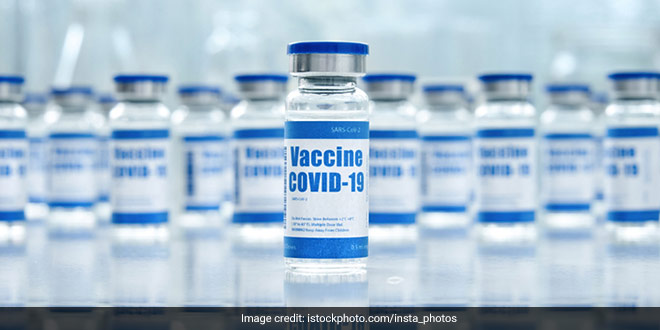Highlights
- ICMR’s DG said vaccinating the country will depend on vaccine’s efficacy
- COVID-19 vaccination will start on a small population: ICMR
- Role of mask will continue even after the vaccination, said ICMR
New Delhi: The Union Health Ministry on Tuesday (December 1) said that the government had never spoken about vaccinating the entire country for the coronavirus pandemic. At a press briefing, Union health secretary Rajesh Bhushan said that there might not even be a need to vaccinate the entire population and that it is important to discuss such scientific issues, based on factual information only.
I just want to make this clear that the government has never spoken about vaccinating the entire country. It’s important that we discuss such scientific issues, based on factual information only, Mr Bhushan said when asked about a timeline for inoculating the entire country.
ICMR DG Balram Bhargava also said,
It would depend on the efficacy of the vaccine and our purpose is to break the chain of virus transmission and if we are able to vaccinate critical mass of people and break that transmission then we may not have to vaccinate the entire population.
The ICMR DG also added that role of masks in curbing the spread of the virus is vitally important and will continue even after the vaccination.
Also Read: Odisha Stands Prepared For COVID-19 Vaccination, Informs State Government To Centre
Role of mask is vitally important and that will continue even after the vaccination because we are starting with a small population at a time. Therefore mask will be protective and continue to be used so as to help in breaking the chain of viral transmission, he said.
Responding to a question about the adverse event reported at the COVID-19 vaccine trial at the Serum Institute of India, the health secretary said: “Adverse event will not affect the timeline in any manner whatsoever.”
“Data Safety Monitoring Board also monitors clinical trial from day to day basis and keeps an eye on adverse events and report it. Drug Controller General analyses all reports and finds out whether there’s a one-to-one co-relation between adverse event and vaccination,” he said.
The ICMR DG also said that adverse events do occur with drugs or vaccines or any other health intervention.
It is the role of the regulator after collating all data to ascertain or refute whether there is a causal link between the event and intervention, he said.
The Union Health ministry secretary also said that India has the lowest per million cases of coronavirus in the world and the average daily positivity rate stood at 3.72 last week.
Also Read: PM Modi Appreciates Scientists’ Efforts To Come Out With Vaccine Solution To Combat COVID-19
(Except for the headline, this story has not been edited by NDTV staff and is published from a syndicated feed.)
NDTV – Dettol Banega Swasth India campaign is an extension of the five-year-old Banega Swachh India initiative helmed by Campaign Ambassador Amitabh Bachchan. It aims to spread awareness about critical health issues facing the country. In wake of the current COVID-19 pandemic, the need for WASH (Water, Sanitation and Hygiene) is reaffirmed as handwashing is one of the ways to prevent Coronavirus infection and other diseases. The campaign highlights the importance of nutrition and healthcare for women and children to prevent maternal and child mortality, fight malnutrition, stunting, wasting, anaemia and disease prevention through vaccines. Importance of programmes like Public Distribution System (PDS), Mid-day Meal Scheme, POSHAN Abhiyan and the role of Aganwadis and ASHA workers are also covered. Only a Swachh or clean India where toilets are used and open defecation free (ODF) status achieved as part of the Swachh Bharat Abhiyan launched by Prime Minister Narendra Modi in 2014, can eradicate diseases like diahorrea and become a Swasth or healthy India. The campaign will continue to cover issues like air pollution, waste management, plastic ban, manual scavenging and sanitation workers and menstrual hygiene.
[corona_data_new]





























